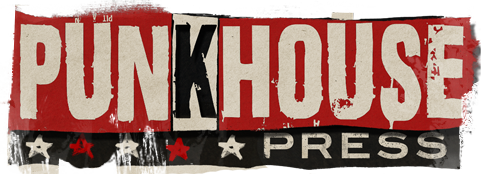By Dyonna Wilkerson

Interacting with punk music has always been an interesting terrain for me. As a black woman from the south, navigating through the punk scene through online forums and in person concerts was a tricky thing, something that required a lot of tenacity and critical thinking. Being told for years during this time that punk music was a “white people” thing and that I had no place in the scene that people who looked like me had helped create was as sickeningly familiar. For this reason, I find solace in Washington, D.C band, Bad Brains.
I will admit I had never heard of the band until beginning my research. Reading their entry on Wikipedia was like discovering a club built just for you after being denied access to so many others. My initial research of the group began with learning about their short experiences in their home of D.C, as they realized bars would not let them play, in part because of their skin tone. Mixed with the lack of a punk scene in D.C and their disruptive presence, the group migrated to New York where they could really kick off their hardcore career. They began at the legendary CBCG club, where they played at the sleepy time of a Sunday matinee. Eventually, when someone had the idea that hardcore music might be better fitted for a weekend crowd, Bad Brains picked up chatter and pushed themselves further into the NYC punk scene. Here, they earned larger than life accounts from people who got to see them live. Their fast performance “was like a bomb going off. It was louder, it was faster.” (Tony Rettman.)
In an interview with Dr. Know, he said “first off we’ve always considered ourselves more of a spiritual band than a political band” when talking about how they felt about the inauguration of President Obama. Even though they don’t concern themselves with politics, the band recognizes the hardships of Black Americans and the design of the system that keeps them oppressed. “The Man will have his day though, his time will come, The Man can’t go on forever.” I feel this to be an important acknowledgment of capitalism as the force that keeps most minorities, like Bad Brains themselves, in an oppressive state. This type of criticism also holds a world of meaning coming from the very people our system continues to beat down upon.
The band’s spirituality was something all their own. They call it their Positive Mental Attitude, which they formulated when reading Think & Grow Rich by Napoleon Hill, a book that concerns itself with “the philosophy of achievement.” This concept informed the band on “dealing with adversity, [and] how to get where you want to go” as described by the band’s bassist, Darryl Jenifer. This is even a sentiment Bad Brains documented in their music with the track Attitude. The band chants over and over that they don’t care what outsiders might have to say about them because they “got that P.M.A!” When understanding Bad Brains’ history of being forced out of D.C partly because of their race, this song really holds the center of what they mean to me. Eventually, the band turns to Rastafarianism to continue to fuel their Positive Mental Attitude.
In the same way black people are often kept out of punk music, we often have a hard time finding a place in the spiritual community. There are often spaces built to serve white interests that ignore the African history of spirituality. Dr. Know addresses the band’s spirituality by calling them a band that hopes people do things with meaning. As a black student currently going through a pandemic, this sentiment resonates. Intentional doing is something that I can find everywhere, in classes, career aspects, and the relationships I make. We as students are often told this is the best time of our lives, and to cherish this moment. To me, Bad Brains represents using our energy to propel ourselves forward in everything we do and to put ourselves in settings that benefit us. Finding meaningful classes, careers, and relationships is what makes life beautiful to me, even if some of those things are disrupted by a global pandemic. It is up to me to find the meaning again. “You seek, you find.” (Dr. Know)
Sources:
An Interview with Dr. Know of Bad Brains
Punk, purity, and positive mental attitude: The turbulent tale of Bad Brains









